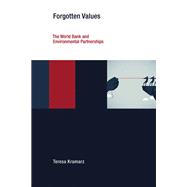Multi-stakeholder partnerships have become an increasingly common form of global governance. Partnerships, usually between international organizations (IOs) or state agencies and such private actors as NGOs, businesses, and academic institutions, have even been promoted as the gold standard of good governance—participatory, innovative, and well-funded. And yet these partnerships often fail to live up to the values that motivated their establishment. In this book, Teresa Kramarz examines this gap between promise and performance by analyzing partnerships in biodiversity conservation initiatives launched by the World Bank.
Kramarz reviews World Bank biodiversity partnerships over a twenty-year period, with in-depth studies of two: the Critical Ecosystem Partnership Fund and the Global Invasive Species Program. She finds that partnerships fall short when established in the shadow of a large, mature bureaucracy. Bureaucrats have trouble relinquishing control, and they distrust partners who do not abide by set policies and procedures. The partnership's potential contribution to biodiversity conservation succumbs to the goals of bureaucratic efficiency. Kramarz develops a theoretical framework to explain the gap between values and practice, combining rationalist and constructivist approaches. Viewing World Bank biodiversity partnerships through this theoretical lens, she shows how the World Bank's risk aversion, hierarchy, focus on rules and procedures, and division of labor have a significant influence on partnership outcomes.








